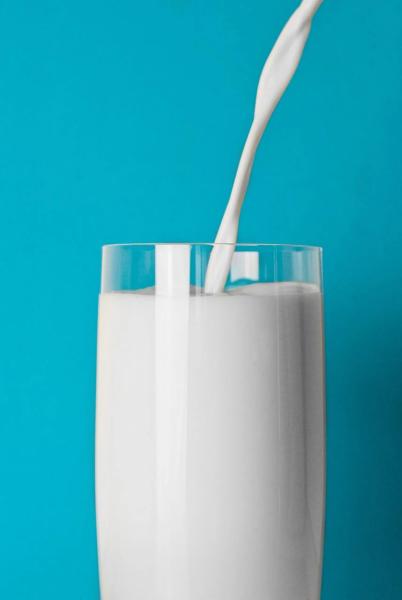Scientists have known for many years that genetically engineered (GE) crops pose no greater risk to human health or the environment than their conventional counterparts. A similar case has been made for GE animals as evidence accumulates that we can safely apply the tools of biotechnology to achieve all sorts of useful ends, such as engineering disease-resistant pigs and hornless dairy cattle. The authors of a study recently published in GEN Biotechnology have gathered additional data that tells a similar story.
Dairy cows have a nasty habit of goring each other and their human handlers, so their horns are usually removed early in life. This can be an unpleasant experience for the animals and can cause serious injury if done incorrectly. Scientists can breed hornless (polled) animals with the help of genetic engineering, rendering the procedure unnecessary. But this raises an important question: is it safe to consume products derived from these cows? [1]
It's just milk and meat
The researchers addressed this food-safety concern by assessing the nutritional composition of meat and milk derived from six offspring of a gene-edited (GnEd) bull compared to the same products from conventionally bred cows. What did they find?
In terms of nutritional composition, “All nutrient values for sirloin cap, chuck arm, and tri-tip collected from polled offspring of the GnEd bull, the GnEd bull itself, and control comparator offspring were within the range of values found in the literature for raw beef composition across 37 countries,” the authors reported. Meat from the controls had slightly higher levels of vitamin B12, while meat from the edited offspring contained greater quantities of 11 amino acids.
The researchers reported similar results for milk composition. Nutritional values for milk collected from one offspring of the edited cow and four controls were identical, but values for true protein casein, calcium, phosphorous, magnesium, and sodium were higher in the gene-edited offspring. None of these variations represent a hazard to human health. As the researchers put it,
“The health and product compositional data we collected for a 2 year period suggested that the six polled offspring of the GnEd bull were healthy, and products derived from them were nutritionally similar to contemporary comparator cattle and within the norms of known biological variability.”
Why are we scared of gene editing?
As the debate over animal biotechnology proceeds, we should keep an oft-overlooked but crucially important point in mind: all meat and milk we consume comes from animals whose genomes contain lots of “off-target” changes. The DNA of domesticated cattle contains more than 86 million mutations, none of which are linked to negative health outcomes in humans. Since we enjoy meat and milk from these animals without a second thought, there is no reason to apply greater scrutiny to products derived from their genetically engineered counterparts.
It's not just activist groups and consumers who need to keep this observation in mind. The Food and Drug Administration has also missed its significance, because the agency currently regulates the DNA of gene-edited animals as a veterinary drug. This is makes it incredibly difficult for scientists to commercialize these products.
Nobody knows exactly why the FDA takes such a hard-line stance on animal gene editing, though some experts suspect FDA policy is primarily designed to assuage litigious activist groups. Few companies and universities have the resources to get their products over this byzantine regulatory hurdle, which gives anti-GMO groups fewer excuses to sue the FDA. According to the study authors, many useful products remain off the market as a result:
“In the absence of a hazard, mandating that regulatory approval requires the measurement of concentrations of undefined key components of GnEd animals and conventional counterparts grown and bred under the same husbandry conditions will unnecessarily make it cost prohibitive to use GnEd to introduce useful traits such as polled, disease resistance, and heat tolerance into conventional food animal breeding programs.”
Conclusion
Groups like the Center for Food safety will continue to rail against this technology and demand additional research “to assess long-term risks and environmental threats associated with GE animals.” If their past behavior is any indication, this is just a ploy to keep gene-edited animals in regulatory limbo; no amount of testing will ever address their concerns. The rest of us should look at the evidence and proceed accordingly. We can use gene editing to enhance our food supply and promote animal welfare. There's no reason to drag our feet any longer.
[1] The study also evaluated the health and growth of the edited animals. I'll come back to these details in a future article.




